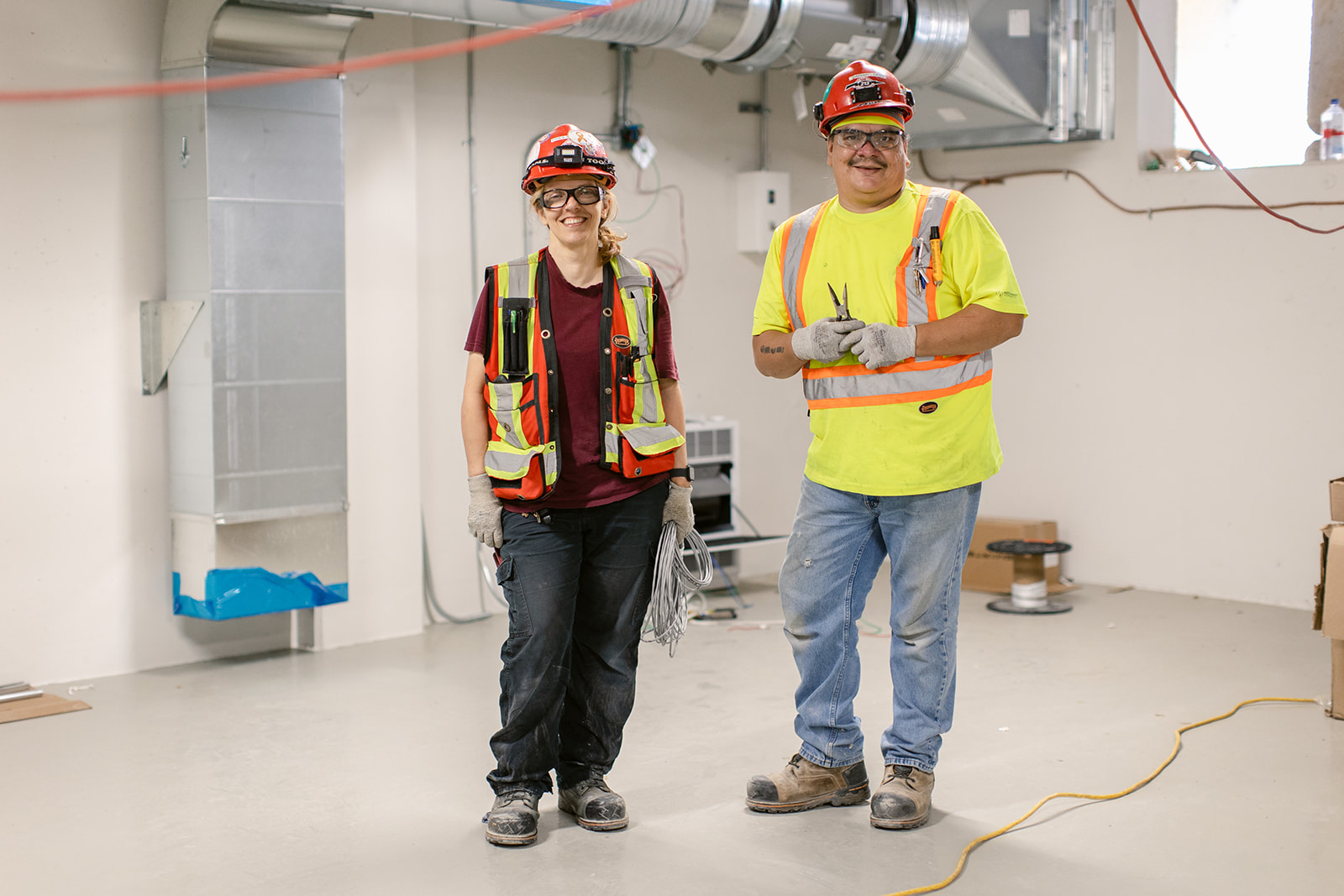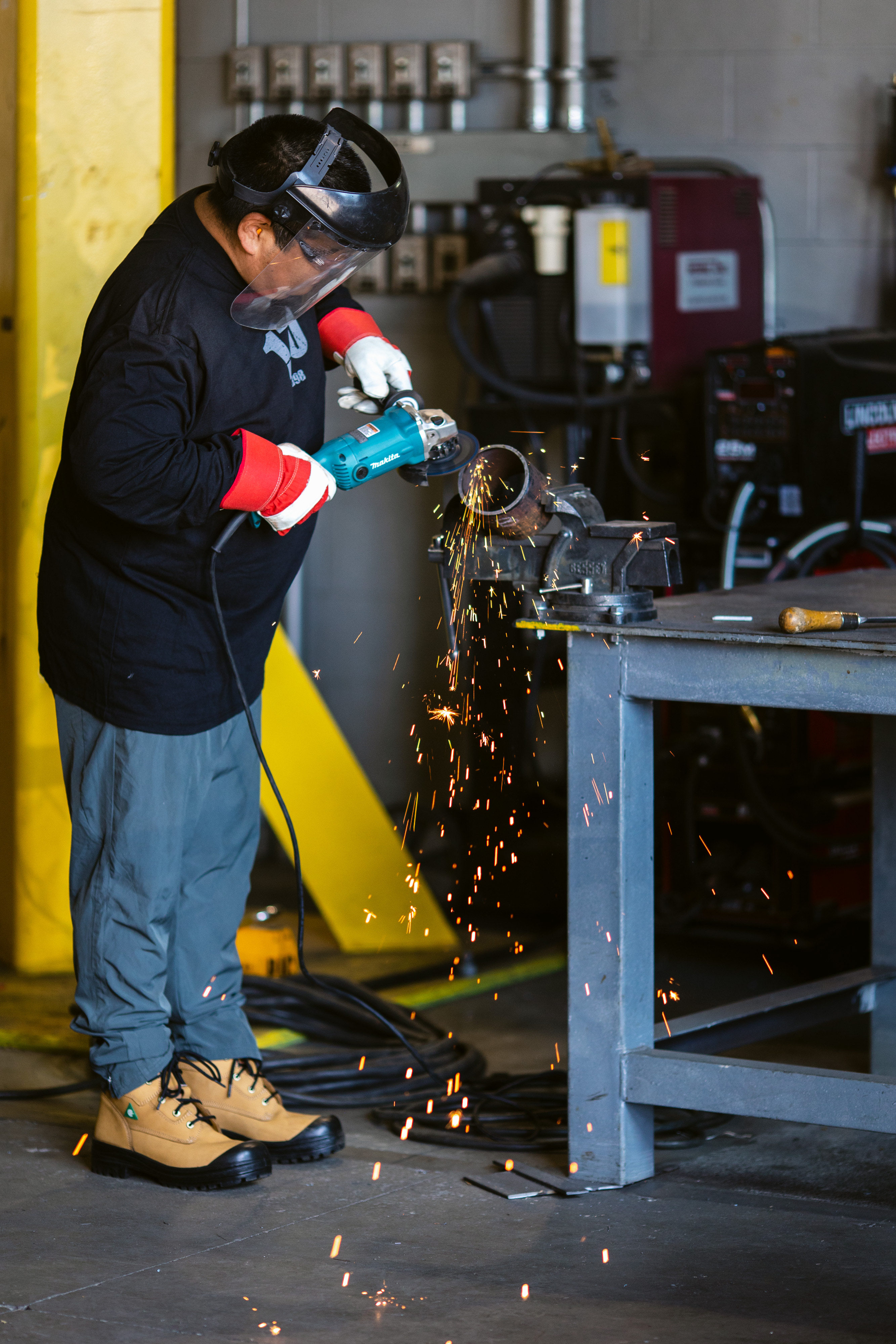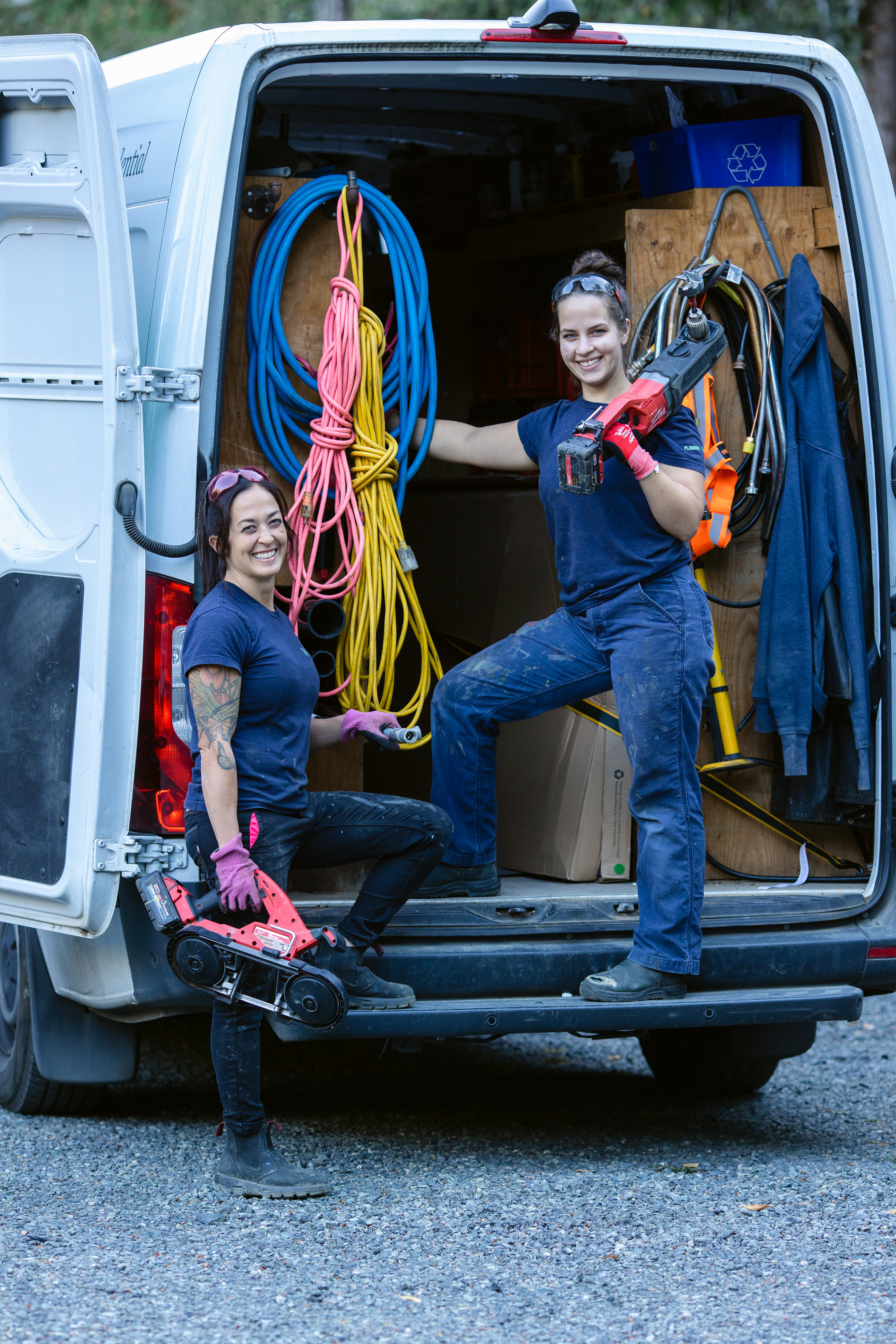
What is a skilled trade?
A skilled trade is an occupation that requires a particular skillset, knowledge base or ability. You see the evidence of skilled trades every day—when you walk into a building, drive down the road, go to a restaurant or simply turn on a light.
When people think of skilled trades, there are a few that immediately come to mind—Plumber, Carpenter, Electrician—but the trades are much more extensive. Everything from Crane Operators to Hairstylists, Locksmiths, Arborists, and many more. SkilledTradesBC manages nearly 90 trades training programs in B.C.
How to get into a skilled trade?
There is more than one way to start a career in trades. Whether you are just starting or already have years of experience, there is a path for you.
An apprenticeship is a combination of paid, on-the-job training and classroom learning that leads to a trade credential. As an apprentice, you will gain practical experience working alongside experienced tradespeople and complete technical training to build your skills.
Learn more about how to become an apprentice and start your journey toward certification.
Experienced tradespeople who have not completed a formal apprenticeship but want to become certified may be eligible to challenge a skilled trade. Depending on your experience, you can challenge level exams to enter the apprenticeship pathway at the appropriate level or challenge the certification exam to get certified.
Learn more about how to apply to challenge a skilled trade.
Paid training, a satisfying hands-on career, flexibility—these are just a few of the great reasons to consider a career in the skilled trades. And the demand is strong: over the next ten years, more than 100,000 skilled trades job openings are expected in B.C.
About Us
SkilledTradesBC is the organization that advances British Columbia’s trades training system.

Roles & Responsibilities
Apprenticeship is a real group effort. Apprentices, sponsors, training providers and SkilledTradesBC all work closely together toward the same goal, with their own unique roles and responsibilities.
Apprentices are responsible for reviewing and understanding the requirements of their apprenticeship program, registering for technical training every year at a recognized training provider and accumulating work-based training hours.
Download our Apprenticeship Brochure
Sponsors (also often employers) are responsible for ensuring apprentices receive on-the-job skills training and mentorship from a certified journeyperson. They support their apprentices’ progression through the apprenticeship program, including reporting work-based training hours acquired on the job and providing a recommendation for certification to confirm program requirements are complete.
Training providers are SkilledTradesBC-designated colleges, universities, technical institutes, school districts and non-public institutions across the province that provide technical training—the classroom portion of an apprenticeship.
SkilledTradesBC is the organization that advances B.C.’s trades training system. We work in partnership with industry, training and service providers and government to set program standards, issue credentials, oversee exam administration and support apprentices, trade workers and sponsors in navigating the pathways to certification.
Learn more about SkilledTradesBC
Creating Equitable Access to the Trades
Creating Equitable Access to the Trades

We work closely with Indigenous communities, industry partners and training providers to make trades training accessible to Indigenous learners in both rural and urban communities.

We are helping to get more women and underrepresented groups in the trades, by highlighting their stories and supporting key programs.
Frequently Asked Questions
An apprenticeship is a combination of on-the-job training and classroom learning that leads to a trade credential, such as a Certificate of Qualification (CoQ) or Red Seal. Once you complete your apprenticeship and receive your certification, you are qualified to work in a skilled trade. You can be an apprentice during high school or after you graduate.
Apprenticeship training helps you get a Certificate of Qualification (CoQ), which is accepted across B.C. About 50 trades also offer a Red Seal, which certifies you to work across Canada.
Apprenticeships are open to adults and youth. Everyone is welcome, even if you’re in high school, finished college, or simply want a career change.
If you’re ready to start an apprenticeship, you’ll need to find a job with an employer who will sponsor and train you. For help finding a job in your chosen trade check out WorkBC.
Over half of the trades in B.C. are Red Seal trades. Tradespersons who have successfully passed the Red Seal Interprovincial Examination receive a nationally recognized Red Seal Endorsement (RSE) on their trade certification, indicating that they have demonstrated the knowledge and skills necessary to practice the trade across Canada. Learn more on the Red Seal website.
There are seven trades in B.C. that are designated as Skilled Trades Certification trades, also known as compulsory trades--meaning tradespeople working in these trades must be either registered apprentices or certified journeypersons. Learn more about the requirements of Skilled Trades Certification.
